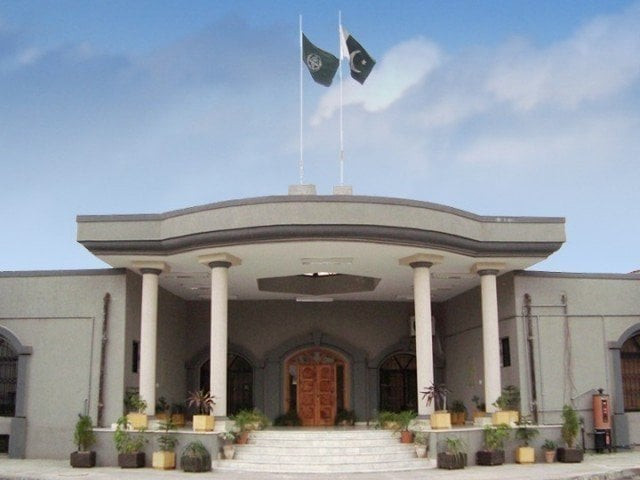IHC reserves verdict in SC employees’ information case
Petitioner said he was seeking details in the capacity of an ordinary citizen

The Islamabad High Court (IHC) on Thursday reserved its verdict in a case about making the details of Supreme Court (SC) staff public.
The SC registrar through the Attorney General for Pakistan (AGP) Khalid Jawed Khan’s office, had filed a petition in the IHC against the Pakistan Information Council’s (PIC) July 12 order wherein the SC registrar was directed to share with the appellant the requested information at the earliest, but not later than 20 working days of the receipt of the order.
At the outset of the hearing on Thursday, IHC Chief Justice Athar Minallah asked the applicant why he was seeking the information. The petitioner replied that he was asking for details in the capacity of an ordinary citizen.
The chief justice inquired how the law ministry was an affected party in the case and asked was it a “contracting ministry” of the Supreme Court.
The AGP replied that the law ministry looked after these sorts of affairs and was an affected party as it issued notification pertaining to matters of the top court.
The IHC inquired whether the law ministry had sought SC’s permission in this case. The AGP replied that the ministry had asked for the apex court registrar’s consent.
| Read More: Employees of 121 ex-FATA projects to be regularised |
The IHC pointed out that the permission should have been sought from the top court and asked why the AGP approached the SC registrar.
The AGP maintained that being a representative of the federation he could not ask the SC registrar to seek directives from the apex court.
Chief Justice Minallah again asked how the ministry or a high court could be an affected party.
Quoting an example, the AGP said the high court had been filing a writ petition on its own in cases of sales tax exemption.
The court asked the AGP to differentiate between the apex court and the SC registrar. The AGP replied it was clear that the SC registrar was not the top court.
The AGP remarked that the top court had decided that a writ cannot be issued against a high court judge.
The IHC maintained that the chief justice and judges represented the high court, adding that the same went for the SC. It was further observed that the citizen had sought details regarding the registrar and not the apex court judges.
The AGP said the SC did not want to hide anything and added that the PIC could not give any order in this regard under the law. He said the PIC was a legal institution which could only seek information from the public bodies and not from the top court.
On being asked, the petitioner referred to a case in India where the information commission had asked about details of the Supreme Court judges, which were given.
In May 2019, applicant Mukhtar Ahmed Ali had approached the PIC, seeking particular information about the total sanctioned strength of staff members of the top court against different positions and pay scales.
The data sought details from pay scale 1 to 22, along with total vacancies in the top court against different pay scales and positions. The applicant had also sought the dates from which the positions were lying vacant.
The applicant asked for the number of staff members who were not regular but had been engaged on daily-wage basis or through short-term or long-term contracts against various positions and pay scales and the number and types of positions created anew since January 1, 2017.
The total number of female, disabled people and transgender staff members against various positions and pay scales working with the SC and a certified copy of the latest approved service rules of the top court were also required.



















COMMENTS
Comments are moderated and generally will be posted if they are on-topic and not abusive.
For more information, please see our Comments FAQ